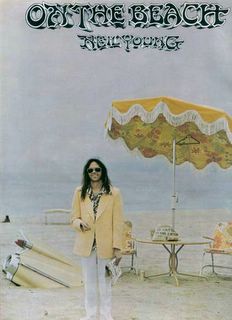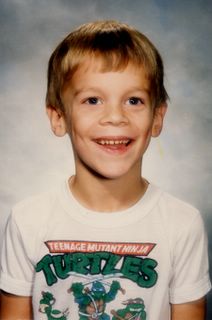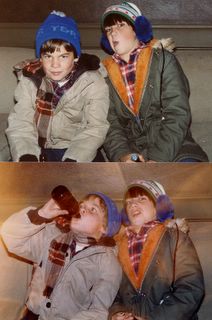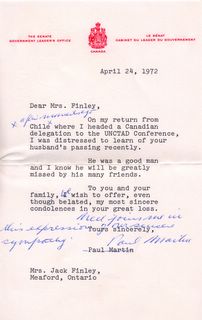Atonement, Ian McEwan's recent masterpiece, was a self-consciously English novel, but cruelly twisted. For the Tallis family, the estate was ugly, the patriarch largely absent, and the mother, while in possession of a social clairvoyance worthy of Mrs. Ramsey, bedridden and invalid. Divorce lurked, as did D.H. Lawrence, whose Lady Chatterley's Lover supplied the protagonist with a newfangled obscenity, a single word with the power to upend a promising young life. Atonement was an English novel, and a war novel, and a romance (and a tour de force and a best seller), a sprawling meditation on how the 19th century lingered on into the 20th. It was also an unusual turn for its author, who is better known for being rimy and terse and, especially in his early work, more than a little macabre. For his latest, McEwan has recoiled the spring. Saturday is a taut procedural, taking us through a single day in the life of Henry Perowne, neurosurgeon. Nonetheless, for all its economy and topicality-9/11 and the Iraq war lurk behind every page-Saturday is a deeply English novel, a beautiful book presided over no less than Atonement by a longing for the old village virtues of peace and continuity.
There are three things you should know about Henry Perowne up front. The first is that his is a most exquisitely trained human intelligence. A brilliant neurosurgeon, Perowne is scientific, rationalistic, disciplined, thorough, and thoroughly risk-averse. Above all, in a world increasingly devoted to manic certitude, Henry Perowne must be ready to admit that he doesn't know what he doesn't know. On this day, the single day to which Saturday is devoted, Feb. 15, 2003, as crowds gather in London for a massive protest against the coming invasion of Iraq, that queasy agnosticism, as McEwan labels it, is trained on the nature of life in a capital city in the aftermath of 9/11. "London," Perowne muses, "his small part of it, lies wide open, impossible to defend, waiting for its bomb, like a hundred other cities." The second thing you should know about Henry Perowne is that he does not cheat on his wife. About this McEwan is simply brilliant. Perowne is not sexually repressed nor sexually depleted, and he is not remotely a prude or a moralist. As friends and colleagues fall in with younger women, causing marriages to blow apart,
Perowne watches on with unease, fearing he lacks an element of the masculine life force, and a bold and healthy appetite for experience. Where's his curiosity? What's wrong with him? But there's nothing he can do about himself. He meets the occasional questioning glance of an attractive woman with a bland and level smile. This fidelity might look like virtue or doggedness, but it's neither of these, because he exercises no real choice. This is what he was to have: possession, belonging, repetition.
The third thing you need to know about Henry Perowne is that he is, at least after a fashion, a philistine. His daughter, a young and soon-to-be published poet, has been pushing the Penguin Classics on him for years, to little avail. "Work that you cannot begin to imagine achieving yourself, that displays a ruthless, nearly inhuman element of self-enclosed perfection-this is his idea of genius," Perowne muses, by which he means cathedrals, general relativity, and maybe later Coltrane. "This notion of Daisy's, that people can't 'live' without stories, is simply not true. He is living proof." His father-in-law, meanwhile, a poet of midlevel renown, confounds him. "Perowne can't see how poetry-rather occasional work it appears, like grape picking-can occupy a whole working life, or how such an edifice of reputation and self-regard can rest on so little." McEwan would like us to know that, above all, Perowne is a man of strict limits, if not
limitations: "A coarse, unredeemable materialist," as his daughter has it, a contented monogamist, a man capable of relishing without embarrassment his Well-Tempered Klavier and his Mercedes S500 with the cream upholstery. Henry Perowne's life, then, is a perfect balance of gratifications, both delayed and promptly taken.
And so he represents, in his own modest way, a comeuppance to those prior heroes of books devoted to a single day, Tommy Wilhelm from Bellow's masterful Seize the Day, and of course the near category-killer, the modern bourgeois Ulysses known as Leopold Bloom. Unlike his antecedents, Henry Perowne is not in possession of the secret chasms of the terminally weak, a suppurating conscience upon which the full magnificence of the English language need be brought to bear. This is not Perowne's style, as it were; and it is not McEwan's, a writer who has struggled in his shrewd way with the legacy of Joyce's modernism, and Bellow's Americanism. In Saturday, McEwan, if I read him right, pronounces on both. His own art as a fiction writer, in the magnificent passages describing Perowne at work, possesses a ruthless element of self-enclosed perfection. In these passages, McEwan's performance as novelist in midcareer and at the height of his powers aligns perfectly with Perowne's performance as a surgeon. Here the two cold virtuosos show off together:
Opening the back of the head needed great care because of the vessels running close under the bone. Rodney leaned in at Perowne's side to irrigate the drilling and cauterize the bleeding with the bipolar. Finally it lay exposed, the tenorium-the tent-a pale delicate structure of great beauty, like the little whirl of a veiled dancer, where the dura is gathered and parted again. Below it lay the cerebellum. By cutting away carefully, Perowne allowed gravity itself to draw the cerebellum down-no need for retractors-and it was possible to see deep into the region where the pineal lay, with the tumor extending in a vast red mass right in front of it.
Lucidity, control, a ratcheting down of horizons, an impatience with tricksterism, and a kind of mild incredulity in the face of the large personality, literary and otherwise: In Saturday, Perowne and McEwan are together aligned against the legacy of modernist razzle-dazzle. Against Bellow, whom McEwan almost certainly admires deeply, and who supplies the epigraph for Saturday, McEwan/Perowne are also aligned, in their impatience with any romance associated with gangsterism. There are gangsters in Saturday, but they are pitiable remnants, objects of curiosity, no longer bringing with them even a hint of the old brutal glamour. In Saturday, nostalgie de la bou has been replaced with good old English phlegm, a respect for the banal workings of a civilization run by shopkeepers. Or precisely what we must learn once again to admire, now that "harmless streets like this and the tolerant life they embody can be destroyed by the new enemy-well-organized, tentacular, full of hatred and focused zeal."
In our day and age, people do not typically acquire their homes by inheriting them. They do in an Ian McEwan novel. In Amsterdam, the dashing composer Clive "inherited from a rich and childless uncle a gigantic stuccoed villa." The Tallis family seat in Atonement, a magnificent but ugly baronial Gothic, comes down from the children's grandfather, a man who made his fortune by patenting padlock designs. Even in Black Dogs, the orphan narrator who escapes his dismal upbringing, spent his early life in "the big apartment-Jean [his sister] had inherited half the estate; my half was held in trust." In Saturday, there are not one, but two such residences. Perowne's father-in-law, the eminent poet, has a French château that Perowne worries may end up in "the hands of a newcomer," by which he means the old man's latest mistress. Perowne's own house, a 7,000-square-foot mansion off Tottenham Court Road, comes to him through his mother-in-law. Saturday is a relentlessly modern novel, about brain surgery, terrorism, mass media; yet its protagonist, the very model of an upper-middle-class affluent professional, did not buy his own home, a detail McEwan expands upon at length.
What are we to make of this quaint anachronism, a practice that comes to us, imaginatively, from 18th- and 19th-century novels, but that McEwan has taken pains to preserve for his very 20th-century novels? A cursory description of Saturday, its various set pieces and themes, might make it sound like a sequel to Mao II. But in feeling, it is closer to George Eliot than to Don DeLillo. Against our hypermodern preoccupations-with success and real estate and sexual conquest and yuppie nihilism, about which McEwan displays a "vital knowingness," to borrow a phrase from Atonement-there is a deep English affinity for antiquated practices of social continuity. This is why McEwan cannot be said to write "contemporary literature," a grisly oxymoron best left to his less talented peers. He writes English novels. And here we can begin to see how the critics have gotten Saturday wrong. This is a respectably topical novel, of course, with its references to rape rooms and Hans Blix, and a couple of standard-issue crossfires between Perowne, who is beginning to suspect he might support the war, and his devoutly peacenik children. But Saturday at its heart is about the principal obsession of Perowne's life: work.
For better and for worse, the modern regime of work is what deprives us of those old social continuities. Passing the door to his library, Perowne imagines what it might be like to stretch out for an afternoon and read a "world-rank masterpiece," then quickly banishes the thought. "He doesn't want to spend his days off lying, or even sitting, down." The Saturday McEwan depicts is a day strangely without leisure, not only for Perowne but for all of London. ("He can hear the first stirring of steady traffic on Euston Road, like a breeze moving through a forest of firs. People who have to be at work by six on a Saturday," Perowne notices; and later "The city's appetite for Saturday work is robust." For its relative brevity and newsy feel, Saturday contrasts easily with Atonement, but the two novels have emerged from a common set of preoccupations: Where will we locate, in a world dominated by ceaseless labor for wage and profit, in which social roles are rapidly becoming unfixed, a time and place for reflection-for continuity, for what might be called, if it didn't make us blush, a literary consciousness? You may chuckle, as Perowne himself might chuckle, but by the end of his Saturday Perowne's life will be lost or saved thanks to a recitation of the Matthew Arnold poem "Dover Beach." Perowne may be a bulwark against anarchy, but he has precious little culture to show for it. What are we to make of this perfect philistine, and the world of well-wrought, well-earned affluence that sustains him?
Saturday also owes a lot to Virginia Woolf's Mrs. Dalloway.
SIN CITY
eye.net
The seedy setting for graphic novelist Frank Miller's Sin City pulp tales, Basin City is a place where the guns are big and the tits are bigger. Welcome to a world of heartless killers, buxom dames and the sentimental thugs who try to protect them. It's a hard-boiled, hard-dick fantasyland that's as bogus as anything in a Harlequin romance but the pop nihilism in Miller's series (which the revered author of The Dark Knight Returns started in 1991) and this extremely faithful screen adaptation has style in spades. What neither work has is much in the way of wit or soul.
Working in close collaboration with Miller, Robert Rodriguez renders three Sin City stories in live action and lustrous black and white. Though the stark visual palette is occasionally enlivened by splashes of colour (a red pair of lips, a golden stream of puke), the three-part narrative is relentlessly grim. In the first story, a deformed lunk named Marv (Mickey Rourke) avenges the murder of a prostitute who treated him kindly. In the next, the handsome but brutal Dwight (Clive Owen) tries to stave off a war between mobsters and Basin City's tribe of Amazonian hookers. The closer casts Bruce Willis as a weary ex-cop who tries to protect a stripper (Jessica Alba) from a pervy psycho-killer.
A triumph of digital effects and art direction, Sin City looks just about perfect. Yet all its lavishly stylized violence is not enough to compensate for the flaws in the source material. Now that Miller's stories involve flesh-and-blood characters, it's easier to see them for what they are: cut-rate Mickey Spillane retreads that try to get by on the most basic noir tropes. Once the initial thrills are over, the movie's bombastic swagger and dime-store gravitas become deadening. It needs more of the levity or ingenuity that guest director Quentin Tarantino would've contributed had he handled more than a few minutes' worth. (A hilarious cameo by Nicky Katt also adds some much-needed spark.) As it stands, Sin City is a decent place to visit but only a fool would ever want to live there.
MISCELLANY
1. Well, if you have to read about this horror/gong show, this is what you should read.
2. I may be walking to work tomorrow. Or I may not.
3. When marriage kills.
4. Sir Isaac Newton's Notes, Before the Discovery of Gravity.
5. Marvin Gaye Explains what he heard through the Grapevine.
6. Contests galore.
7. Toronto real estate.
My brother Christian is travelling to Bhutan at the end of the month:

My other brother Duncan is travelling to Ecuador at the end of the month:

My sister is travelling to Utah at the end of the month.

(I'm not travelling anywhere at the end of the month, in case you're wondering).












































